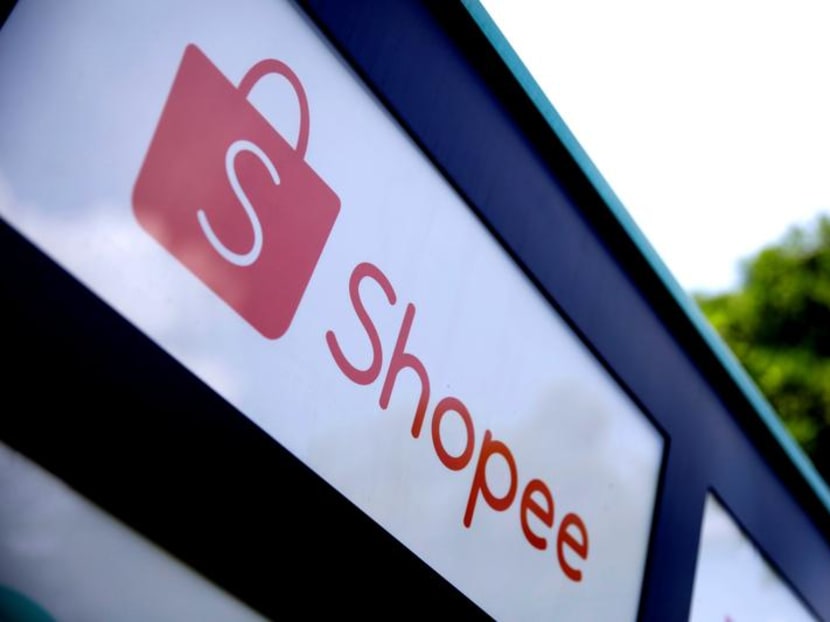How should online marketplaces treat political ads and merchandise?
Overnight, the #BanShopee hashtag climbed to the top of Thailand's Twitter trends. The virtual turbulence came after a core member of the Progressive Movement complained that its online shop was banned on Shopee, one of the leading e-commerce platforms in Southeast Asia.
Overnight, the #BanShopee hashtag climbed to the top of Thailand's Twitter trends.
The virtual turbulence came after a core member of the Progressive Movement complained that its online shop was banned on Shopee, one of the leading e-commerce platforms in Southeast Asia.
The Progressive Movement, a political movement formed by key members of the now-dissolved Future Forward Party, started selling products which include T-shirts and bags emblazoned with group logo via Shopee in April. It's the group's main fund-raising channel.
However, during a Facebook Live session last week, Ms Pannika Wanich, a core Progressive Movement member, alleged the marketplace operator had banned the group's online DemocStore on many occasions.
The first time was on Aug 9, a day before the student activists held a major rally at Thammasat University's Rangsit campus during which they proposed the 10-point monarchy reform plan and the resignation of the Prayut Chan-ocha government.
The store resumed trading after it negotiated with the platform operator.
Then came the second ban on Sept 18, a day before the student rally at Thammasat University's Tha Phra Chan campus and Sanam Luang.
Shopee's reason for the ban: Their products were "politically sensitive" and it has a policy to remain "political neutrality", claimed the group.
Ms Pannika questioned whether the ban is fair as royalist groups continue to sell T-shirts and other products.
Angry netizens, in retaliation, urged consumers to boycott Shopee and demanded an explanation. Many vowed to close down their account with the marketplace.
On Oct 3, Reuters quoted a Shopee spokesman as saying that it has reversed the ban and that its "platform is neutral, and everything is up to company policy".
The saga raises a question over how online marketplaces should treat political ads and merchandise, and goods related to social movements.
Early this year, Amazon announced its ban on sponsored products that contain "content related to campaigns, election or political issues of public debate; that advocates for or against a politician or a political party; or that personally attacks a political figure."
Other big tech firms also take the same stance. Twitter announced in October that it would ban political ads entirely, but remain a platform that gives users the freedom to post and share their political ideas.
Google has extended a restriction on micro-targeting political ads worldwide until November.
On the other hand, though Facebook refused to do similarly, its CEO recently announced a ban on new political ads during a narrow window the week before the US presidential election on Nov 3.
These big tech firms are driven by concern over the damage to their reputations, caused by the spreading of false information and manipulated and inflammatory content that can spread hatred and provoke people to attack persons with different political ideas.
Such content was used widely on social media and political merchandise during the 2016 United States presidential campaign that saw Mr Donald Trump emerge as a winner.
Some major marketplace operators, such as Amazon and Alibaba, set clear rules on what constitutes political merchandise, so store owners are aware of the prohibited items.
Lazada Thailand mentions in its policy that stores selling items "mocking political figures/royalty or propaganda" could be deactivated.
Back to the Shopee's decision, it's arguable whether the Progressive Movement's logo falls into the prohibited item category. It contains no political message that could be interpreted as misinformation or propaganda. Nor does it attack any political figures.
In my opinion, the pro-democracy movement is similar to other social movements like Black Lives Matter and LGBT Rights which put their products on online marketplaces.
However, in Thailand, we know how a broad definition of "prohibited contents and products" can be used to destroy one's enemies.
Shopee's policy is vague. Its prohibited item list includes "obscene, seditious or treasonous materials", a definition open to interpretation.
We also know there is no place for products with sensitive messages like reform of the monarchy.
Back in 2018, the Election Commission decided unanimously to prohibit the then Future Forward Party from raising funds by selling online souvenirs carrying its logo as other political parties were doing. Where was the fairness?
It would be more acceptable if market operators simply slapped a ban on any products that contain misinformation or incorrect information, not those which advocate a certain political ideology.
Shopee now faces a major test if its clients refuse to accept anything less than a level playing field. BANGKOK POST
ABOUT THE AUTHOR:
Paritta Wangkiat is a Bangkok Post columnist.







